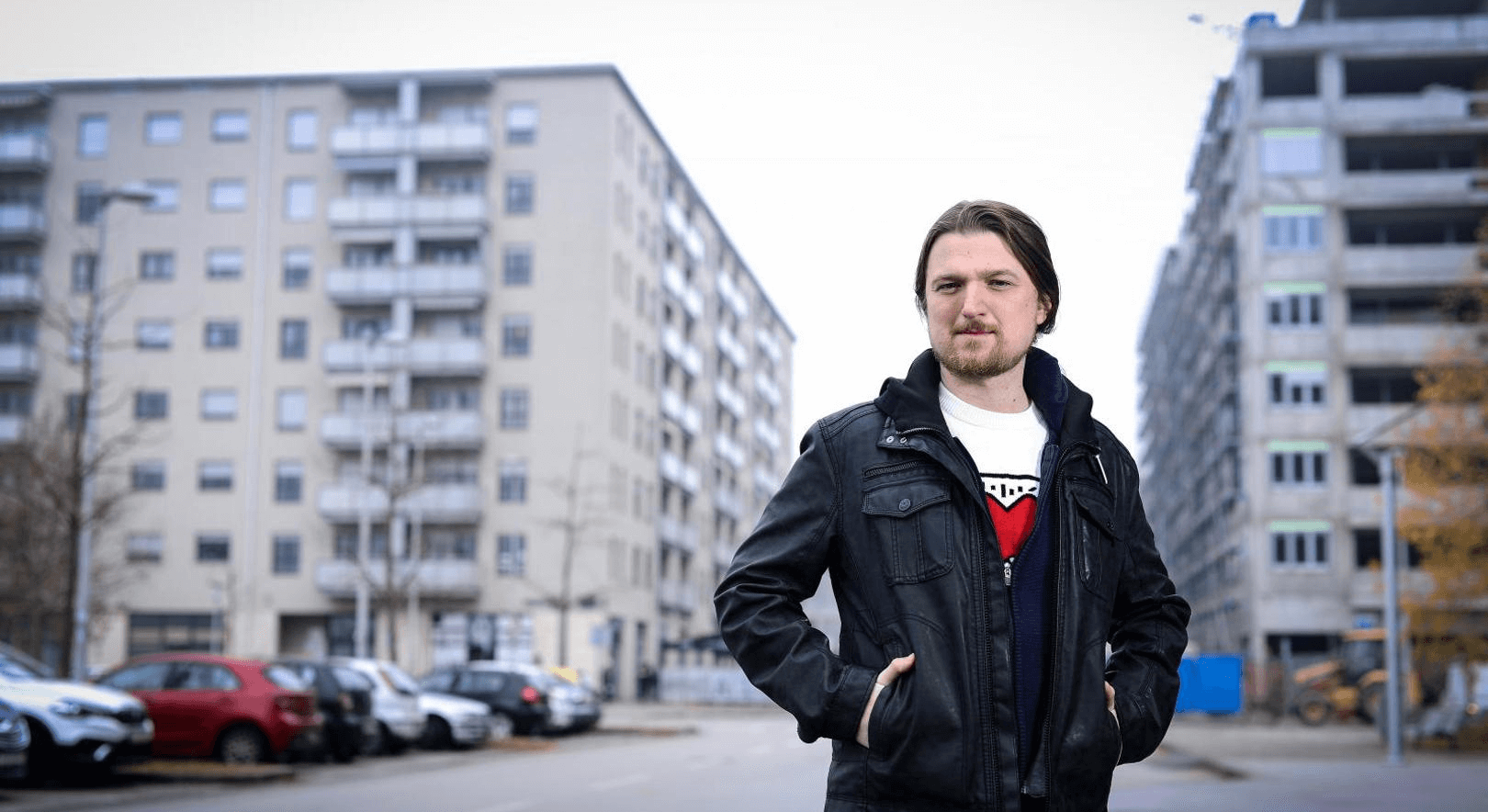Mapping the evolution of the human genome – A Portrait of New Group Leader Fran Supek

Fran Supek, new Group Leader and Professor at the Biotech Research & Innovation Centre (BRIC) in Copenhagen aims to achieve a deeper understanding of the processes behind cancer mutations. He will do so by combining cutting edge new technologies, AI and cross disciplinary collaborations at BRIC to map the evolution of the human genome.
Research vision – why do mutations occur?
Although Fran will address several, diverse scientific problems in the coming years, all of them connect at one level: shedding light on the evolution of the human genome, and more specifically on what causes genetic mutations.
Mutations happen regularly within the human body, but for the most part are eliminated by DNA repair mechanisms. However, in some cases the DNA repair mechanisms are not as effective as they should be, leading to genetic mutations, which a wide range of diseases originate from.
“My research vision is to achieve a better understanding of evolutionary processes operating in human cells, particularly how and why mutations occur when the DNA repair mechanisms do not work as well as they should.
Understanding mutagenesis and DNA repair in human genome evolution is crucial for disease prevention, diagnosis and treatment. This is particularly the case with cancer, a disease caused by mutations”, says Fran Supek, BRIC group leader.
More concretely, the Supek group will use state of the art technologies, such as nanopore long-read sequencing, CRISPR gene editing and AI modelling of DNA sequences, to achieve this deeper understanding of DNA repair in the evolution of the human genome.
“Joining BRIC marks a bit of a new chapter in my scientific journey, furthering my research ambitions in a new environment, bringing along my expertise in genomics and evolution and applied machine learning to computational biology. At BRIC, I am keen to continue pushing the boundaries of knowledge in human genomics, and in particular applying cutting-edge CRISPR gene editing methods, to help understand cancer and genetic disease more generally”, says Fran Supek, BRIC group leader.
Choosing BRIC to foster new collaborations
Among Fran’s considerations about conducting research at BRIC, he high-lights the collaborative environment at BRIC across different research disciplines.
“I would say that the most impactful discoveries tend to emerge from the confluence of diverse minds and perspectives. I envision a future at BRIC where barriers between disciplines become porous, leading to a vibrant mix of collaborative efforts”, says Fran Supek, BRIC group leader.
Further, Fran recognizes the creative and open environment at BRIC as something that fits perfectly withthe culture in Supek group.
“At the core of my group's ethos is the importance of open dialogue. Whether it's a junior PhD student or a senior postdoc, every voice is encouraged to share insights, critiques, and ideas”, says Fran Supek, BRIC group leader.
High “density” of good science in Denmark
Moving to Denmark, Fran brings with him a prestigious European Research Council (ERC) grant and a Novo Nordisk Foundation (NNF) starting grant and he believes that Denmark will provide a good setting for conducting great science, as the “density” of good science is quite high in Denmark.
“Out of all European countries, precisely Denmark was the country with the highest number of ERC grants per capita in the recent calls. Meaning there is a rather high “density” of good science in Denmark. My lab will be in very good company indeed!”, says Fran Supek, BRIC group leader.
Besides the scientific environment Fran is also looking forward to engaging with Danish culture, however, the Danish language might take some time to learn, as he states with the hint of a smile:
“Given our computational background, we certainly plan to run some machine learning simulations to predict how many blankets, candles and fuzzy socks result in maximum “hygge” in the lab. However, I think that no amount of artificial intelligence will probably ever help me pronounce the Copenhagen street names correctly…”, says Fran Supek, BRIC group leader.
An experienced group leader
Fran began his academic journey at the University of Zagreb, in Croatia, obtaining a PhD in Molecular and Cell Biology in 2010. During his doctoral studies, he delved into machine learning in comparative genomics while working as an early-stage researcher at the RBI in Zagreb, the main interdisciplinary research institution in Croatia. His passion for understanding the intricacies of the genome then led him to the Centre for Genomic Regulation (CRG) in Barcelona as a Marie Curie fellow, where he studied cancer evolution during his postdoctoral period at Ben Lehner’s group. By 2017, he started his own lab at the IRB Barcelona institute, and in January 2024 he will move his group to BRIC.
Topics
Contact
Communications Officer Emil Petersen
emil.petersen@bric.ku.dk
